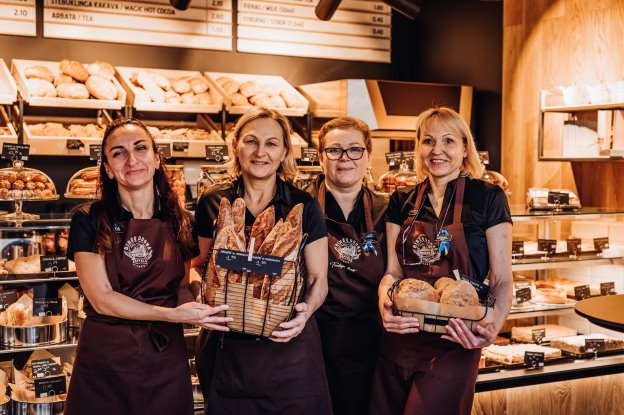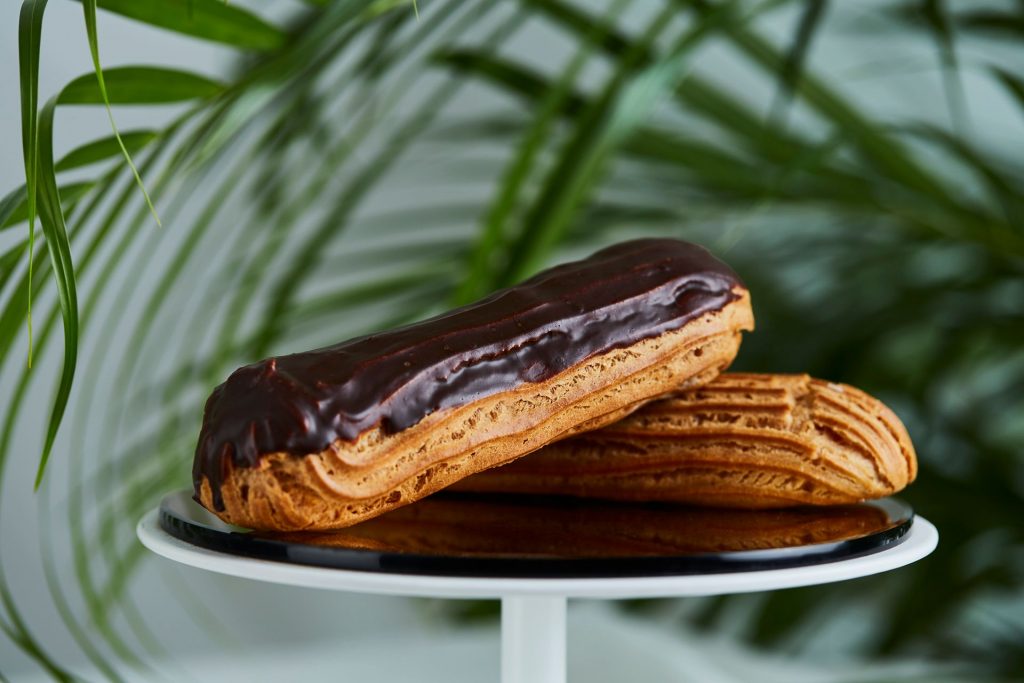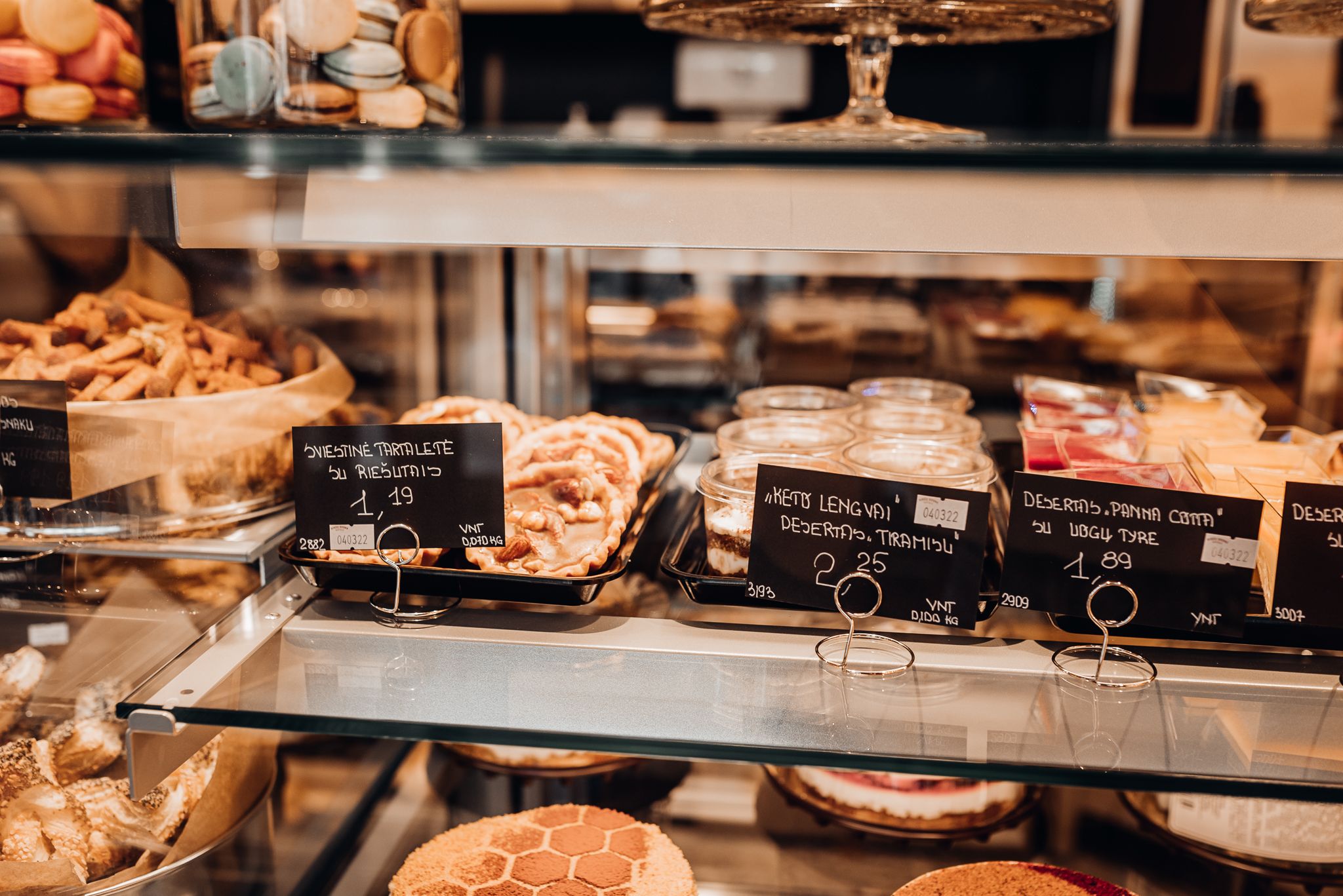As Autumn gradually brings in colder weather and shorter days, Lithuanians frequent bakeries to warm up and enjoy a comforting treat. Three such family-owned confectionaries — Biržų Duona, Pinavija, and Patorė Sesės — have become especially beloved by Vilnius’ locals for their home-like atmosphere and genuine love for the craft of baking.
Throughout centuries, Lithuanian bakers have spun straw into gold — using only a handful of ingredients available to them, such as soft cheeses, eggs, flour, and honey, they were able to craft mouth-watering desserts for their families. The inheritance of culinary traditions from several countries is the key to Lithuanian cuisine’s special alchemy. Germans, French, Italians, French, Jews, Karaites, Tatars, Greeks, and more were welcomed to settle there, and as a result, the nation’s gastronomy benefited from this.
Today, these classic recipes are being experimented with — exciting flavor combinations using previously unavailable ingredients have given new life to Lithuanian baking. From the sweet and poppyseed-filled šimtalapis to the light and crispy strips of žagarėliai, Lithuanian baked goods are inventive, simple, and packed with flavor. Out of the large plethora of bakeries in Lithuania which can be seen on virtually every corner of the country, a handful are family-owned businesses that are at the intersection of the country’s culinary heritage and modern trends. The following three confectionaries charm visitors with their right-at-home atmosphere and expertly crafted flavors.

Biržų Duona
Over 20 tonnes of baked treats daily
One of the oldest and most fundamental Lithuanian food products was and is rye bread — eaten every day for breakfast, lunch, and dinner. It is regarded as having mystical properties, playing an important role in family holiday rituals and agrarian ceremonies. Not an exception, the quaint Lithuanian town of Biržai sees beer and bread as their quintessential products. Locals here are endowed with a love and knowledge of their grains and cereals from birth, and they place a special emphasis on bread since it represents power, family, and health. Nowhere is this more apparent than in Biržų Duona, a bakery chain that started in 1953 and has since spread to 13 other cities and spanned multiple generations of family ownership. From the astounding 20 tonnes of baked goods they produce every day, items like hemp bread and their original cookies with black currant jam and cream cheese filling — skarelės — are now present in almost every Lithuanian table, from grand holiday feasts to slow Sunday brunches.
“Biržų Duona today represents a merging of Lithuania’s authentic baking roots with the technology and forward-looking attitude of today. Around 30% of the energy needed for our operations comes from a solar power plant we built in 2020, which allows us to provide our customer’s beloved goods with minimized impact,” said Gintarė Stepanavičiūtė, Marketing Project Manager at Biržų Duona. “This sustainable philosophy is becoming ever-more reflected in our products, with items like our bread granola — made by mixing various seeds and agave syrup with small caramelized pieces of bread that don’t fit the shelf standard — helping us avoid food waste by giving it new life.”
A pastel paradise for teatime enthusiasts
In the heart of one of Lithuania’s most bustling and busy hotspots — Vilnius street — lies a bakery and tearoom, reminiscent of something plucked straight out of a pastel dollhouse. Pinavija — established over 10 years ago by a wife-and-husband combo of Vija and Jevgenijus Zanevas — blends the enticing fragrance of freshly baked delicacies with decor that is as decadent as the heaps of desserts behind the counter. From homemade kibinai — pastries with a plethora of options for stuffing — and traditional Jewish bagels to elaborate cakes and cookies. Everything is made from the highest caliber ingredients sourced directly from Lithuanian farmers, and no synthetic colors and flavors are used in the production process, making it suitable for young children.
The Pinavija bakery has already earned legendary status among Vilnius residents. Over the years, the Smetonian Napoleon has become the pride of the bakery. This is a cake made according to a unique recipe — the dough is cut and rolled by hand on a specially made oak board, the buttercream is cooked in a unique way, and top-quality French cognac is used to create the perfect taste. From homemade kibinai and bagels to cakes and cookies, everything is made from the highest caliber ingredients sourced directly from Lithuanian farmers.

Sisters take on healthy desserts
Patorė Sesės is a modest bakery found just outside the capital city’s Old Town — a quiet and inviting retreat for an afternoon bun away from the bustle of Vilnius’ busiest streets. Notable for its sugar-free sweets and healthy baked goods that are sure to satisfy even the biggest sweet tooths, the bakery recently came under the management of Lina and Rasa, two sisters. After cultivating a dream of owning their own confectionary for over ten years, the sisters now hope to continue and expand the legacy of the previous owners. Emphasizing the same base of clean ingredients, Patorė Sesės now offers unique, mouth-watering twists on classic pastries, cakes, and pies — such as their now-famous šaltibarščiai cake, a modern take on the beloved Lithuanian cold beetroot soup dish
“What makes us unique is that we make all our baked goods on-site and with our own hands. We use less sugar, natural butter, and only the highest quality products. What sets them apart is the taste, which speaks for itself,” said Rasa Kalinauskaitė. “I get my ideas for baking from family recipes and my memories from childhood, mixed with french baking. Also, our menu is seasonal because we use natural fruit and berries, some of which are grown in our family garden.”
For first-time visitors, Patorė Sesės recommends trying out their handmade croissants, made from dough prepared over two days — the main target of praise from French visitors — or fluffy éclairs with four options of fillings. Also worth a try are the local-beloved skarelės with curd and apple filling or a crumb cake made according to the recipe of the owner’s mother.

